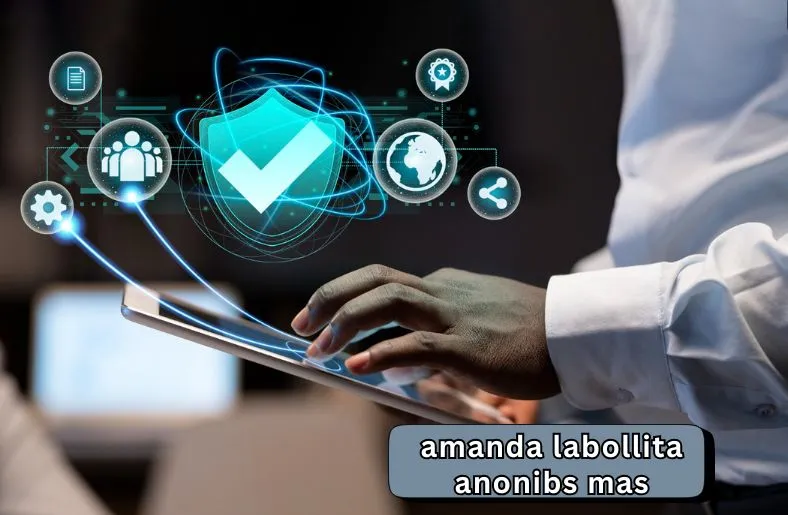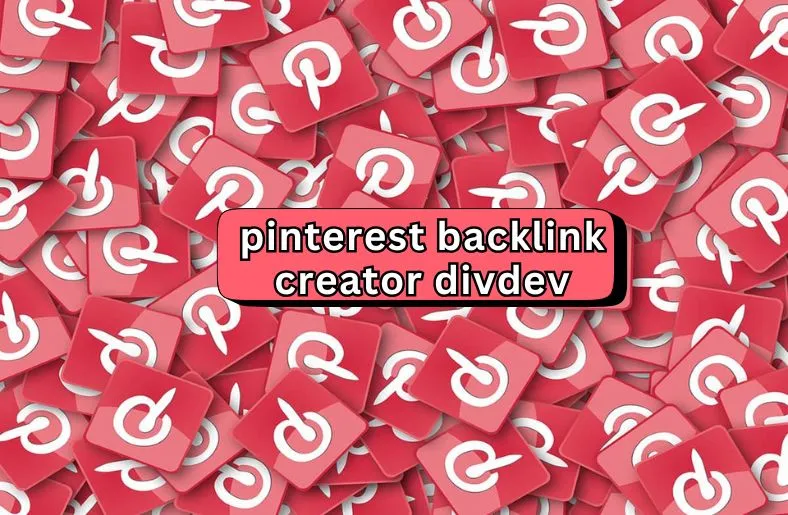Introduction
In today’s digital world, privacy is more important than ever. Many people share their lives online, which can lead to serious risks. One significant example is Amanda Labollita AnonIBs Mas. Her story highlights the dangers of anonymous online platforms. Amanda became linked to AnonIB, a site known for sharing content without consent.
When private images and information about her surfaced, it caused a major outcry. This incident shows how easy it is for someone’s privacy to be violated. The anonymity offered by such platforms can protect against harmful behavior. As a result, individuals like Amanda face emotional and psychological struggles.
Understanding these challenges is crucial in today’s digital age. We must recognize the importance of online safety and the impact of anonymity. This blog post will explore Amanda Labollita’s case and the broader digital privacy issues. Together, we can learn how to protect ourselves and advocate for better online safety measures.
Understanding AnonIB
NonIB is an online imageboard that allows users to post anonymously. It began as a platform for sharing images, but it quickly changed. Over time, many users began sharing inappropriate content. This included explicit images and private information about others.
- One main issue with AnonIB is that it encourages harmful behavior. Users can post without any fear of being caught. This anonymity makes it easy for people to share content without consent. Often, these posts include personal details about the individuals involved. This can lead to severe privacy violations and emotional distress.
- Additionally, the platform has gained notoriety for hosting non-consensual content. Many victims find their private images shared without their knowledge. As a result, individuals face serious harm, both online and offline. The situation can become overwhelming for victims. They often struggle with feelings of shame and anxiety.
- Furthermore, AnonIB has become a hub for online exploitation. Users often target vulnerable individuals, especially women. These acts create a culture of fear and harassment. Many victims have difficulty removing their content from the site, causing ongoing damage.
- Overall, AnonIB represents the darker side of the internet. Its existence raises important questions about privacy and accountability. Understanding this platform is crucial to recognizing the risks associated with online anonymity. This knowledge can help protect individuals from similar experiences in the future.
The Case of Amanda Labollita
Amanda Labollita became a victim of AnonIB when her images were shared online. This situation began when her private photos were leaked without her consent. Once they appeared on the platform, her life changed drastically. The incident thrust her into a public controversy, causing immense distress.
- At first, Amanda felt shocked and violated. The invasion of her privacy was overwhelming. Her images circulated rapidly, reaching a large audience. As a result, she faced negative comments and harassment online. Many victims experience similar feelings of shame and anxiety. They often struggle to cope with the emotional toll of such incidents.
- Moreover, Amanda Labollita AnonIBs Mas case highlights the dangers of online anonymity. Users on AnonIB felt free to share her images without facing any consequences. This anonymity enabled harmful behavior, making it easier for people to exploit others. Amanda’s situation is not unique; many individuals suffer in silence after similar experiences.
- In addition, the impact on Amanda’s personal and professional life was severe. Once her name became linked to AnonIB, it became hard for her to escape. This connection often leads to ongoing harassment and damage to one’s reputation. Victims like Amanda may find it challenging to regain control of their digital identity.
- Lastly, Amanda Labollita AnonIBs Mas case serves as a wake-up call. It emphasizes the urgent need for better protection against online exploitation. Her story encourages conversations about accountability on platforms like AnonIB. By raising awareness, we can work towards creating a safer online environment for everyone. The lessons learned from Amanda’s experience can help prevent future incidents of non-consensual content sharing.
The Impact of Non-Consensual Sharing
Non-consensual sharing of personal content can have severe effects on victims. First, the emotional toll is often overwhelming. Victims frequently experience feelings of shame, anxiety, and sadness. These feelings can linger for a long time, making recovery difficult. As a result, many individuals find it hard to cope with their situation.
Moreover, non-consensual sharing can disrupt personal lives. Friends and family may become aware of the leaked content. This can lead to awkward conversations and strained relationships. Victims often feel isolated as they navigate their pain. They may also withdraw from social interactions to avoid further embarrassment.
In addition, the impact extends to professional life. Job prospects may suffer due to the negative attention surrounding the incident. Many employers conduct online searches before hiring. If harmful content is found, it can hurt the chances of employment. This creates long-term consequences for victims, affecting their financial stability.
Furthermore, non-consensual sharing can lead to cyberbullying. Victims often face harassment from internet trolls who enjoy causing harm. This harassment can occur on social media platforms, making it even more difficult to escape. Victims may feel trapped, and unable to find a safe space online.
Lastly, the long-lasting effects of non-consensual sharing highlight the need for change. Society must address the issue and support victims. By raising awareness, we can work to prevent these harmful acts. It is essential to advocate for stronger laws that protect individuals from such exploitation. Everyone deserves to have their privacy respected and to feel safe online. Together, we can help create a safer digital world for all.
Legal and Ethical Considerations
Legal issues around non-consensual sharing are complex. Many countries have laws against sharing private content without permission. However, not all regions have clear laws. This can make it difficult for victims to seek justice. Often, they face a long and challenging legal process. Moreover, some victims may feel hesitant to come forward due to fear of judgment.
Ethically, the issue raises important questions about privacy. Everyone has the right to control their personal information. Sharing someone’s private content without their consent is a violation of that right. It can cause immense harm to individuals. Society must recognize that consent is essential in all forms of sharing. Without it, trust breaks down.
Additionally, online platforms play a crucial role in this problem. Many websites struggle to enforce their own rules against non-consensual sharing. Some fail to take action when users report harmful content. This lack of response can enable further abuse and harm. Platforms must improve their policies to protect users effectively. They should also ensure swift action against offenders.
Education is another key factor in addressing this issue. Teaching young people about consent and digital privacy is vital. Many individuals may not understand the consequences of their actions online. By raising awareness, we can help prevent incidents of non-consensual sharing. Schools and parents should work together to educate children on these topics.
Finally, a collaborative approach is necessary for real change. Governments, organizations, and online platforms must unite against non-consensual sharing. Together, they can create stronger laws and better support systems for victims. Only by working together can we foster a culture of respect and safety in the digital world. Everyone deserves to feel secure in their online lives.
Combatting Online Exploitation
Combatting online exploitation requires a multi-faceted approach.
- First, raising awareness is crucial. Many people do not realize the risks of sharing personal content. Education can help everyone understand the dangers. Schools should teach students about safe online practices. This knowledge empowers young people to protect themselves.
- Second, reporting mechanisms must be improved. Websites and platforms need to make it easier to report abuse. Clear steps should guide users on how to report harmful content. Quick action is vital to stop the spread of exploitation. Companies should respond promptly to reports of non-consensual sharing.
- Third, stronger laws are necessary. Governments must create and enforce stricter laws against online exploitation. These laws should protect victims and punish offenders. When people know there are consequences, they may think twice before sharing harmful content.
- Moreover, collaboration is essential. Tech companies, law enforcement, and advocacy groups should work together. Sharing resources and expertise can lead to better solutions. For instance, partnerships can develop advanced technology to detect harmful content. This technology can help identify and remove inappropriate material quickly.
- Finally, support networks for victims are crucial. Victims of online exploitation often feel isolated. Providing them with counseling and legal assistance can make a difference. This support helps them regain their confidence and start healing. By focusing on awareness, laws, and support, we can combat online exploitation effectively. Everyone deserves a safe online experience, free from fear and harm.
Conclusion
In conclusion, the case of Amanda Labollita AnonIBs Mas highlights the urgent need for better digital privacy protections. Non-consensual sharing on platforms like AnonIB poses serious risks to individuals. Emotional and psychological harm can linger long after the initial incident. To combat online exploitation, we must raise awareness, improve reporting mechanisms, and enforce stricter laws. Education is essential to help individuals understand the importance of consent and privacy. By working together, society can create a safer online environment where everyone’s rights are respected. Protecting digital privacy is vital for our collective well-being in today’s interconnected world.




